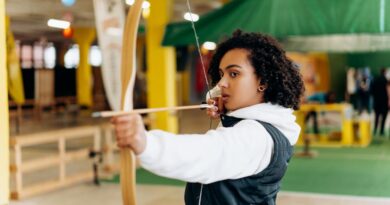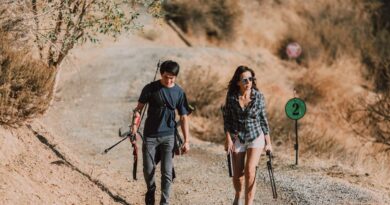Responsible Bowhunting for Ethical Hunters
Welcome to the world of bowhunting, where ancient traditions meet modern ethics. Bowhunting has a long history rooted in the survival and cultural practices of indigenous peoples. While the tools and techniques have evolved over time, the core values of respect for nature and responsible stewardship of wildlife remain at the heart of ethical hunting practices. In this comprehensive guide, we will delve into the principles and practices of responsible bowhunting for ethical hunters, exploring the intricacies of this time-honored sport and its relevance in today’s world.
The Ethics of Bowhunting

At the foundation of responsible bowhunting lies a deep respect for nature and wildlife. Ethical hunters understand the importance of sustainable hunting practices and strive to minimize their impact on the environment. This includes following regulations set by wildlife management authorities, such as bag limits and hunting seasons, to ensure the long-term viability of wildlife populations. Additionally, ethical hunters prioritize quick, clean kills to minimize suffering and waste.
One of the key ethical considerations in bowhunting is the concept of fair chase. Fair chase hunting emphasizes the pursuit of game animals in a manner that gives them a reasonable chance to escape. This means adhering to ethical shot distances, using appropriate equipment, and honing one’s skills to ensure a humane and ethical hunt. By embracing fair chase principles, hunters uphold the integrity of the sport and demonstrate a commitment to ethical hunting practices.
Choosing the Right Equipment

When it comes to bowhunting, selecting the right equipment is crucial for a successful and ethical hunt. Modern advancements in bow technology have made hunting more efficient, but ethical hunters must strike a balance between effectiveness and ethical considerations. Choosing the right bow, arrows, and broadheads is essential to ensure accurate and humane shots. It is important to practice with your equipment regularly to maintain proficiency and ensure ethical kills.
Another important aspect of responsible bowhunting is selecting the appropriate hunting gear, such as camouflage clothing, scent control products, and safety harnesses. These items not only increase your chances of success in the field but also contribute to minimizing your impact on the environment and wildlife. By investing in high-quality, ethically sourced gear, hunters can enhance their hunting experience while upholding ethical standards.
Conservation and Habitat Management

Responsible bowhunters recognize the importance of habitat conservation and wildlife management in maintaining healthy ecosystems. By supporting conservation efforts and habitat restoration projects, hunters can contribute to the preservation of natural habitats and the protection of wildlife populations. Many hunting organizations and conservation groups work collaboratively to conserve land, protect endangered species, and promote sustainable hunting practices.
Furthermore, ethical hunters engage in habitat management activities to improve the quality of wildlife habitats and enhance hunting opportunities. This may include planting food plots, creating water sources, and conducting controlled burns to benefit wildlife species. By actively participating in habitat management initiatives, hunters can help maintain thriving ecosystems and ensure the long-term sustainability of game species.
Ethical Shot Placement

One of the most critical aspects of responsible bowhunting is ensuring ethical shot placement to achieve quick, humane kills. Ethical hunters understand the anatomy of game animals and strive to make precise shots that result in minimal suffering. Proper shot placement targets vital organs, such as the heart and lungs, to ensure a swift and humane kill.
Before taking a shot, hunters must carefully assess the angle, distance, and condition of the animal to determine the most ethical shot placement. This requires patience, skill, and a deep understanding of animal behavior. By honing their marksmanship skills and practicing ethical shot placement, hunters can minimize the risk of wounding animals and ensure a responsible hunting experience.
Respect for Wildlife and Nature
Responsible bowhunting is not just about harvesting game animals; it is also about fostering a deep connection with nature and wildlife. Ethical hunters respect the animals they pursue and appreciate the beauty and complexity of the natural world. This reverence for wildlife extends beyond the hunt and influences how hunters interact with the environment on a daily basis.
By immersing themselves in nature, observing wildlife behaviors, and learning about ecosystems, hunters develop a profound appreciation for the interconnectedness of all living things. This awareness fosters a sense of stewardship and responsibility towards the environment, inspiring hunters to become advocates for conservation and champions of wildlife protection.
Ethical Hunting Practices
In addition to ethical shot placement and fair chase principles, responsible bowhunters adhere to a set of ethical hunting practices that guide their behavior in the field. These practices include respecting private property rights, obtaining landowner permission before hunting on private land, and following designated hunting regulations and boundaries.
Furthermore, ethical hunters prioritize safety in the field by practicing proper firearm and bow safety, wearing appropriate safety gear, and adhering to hunting laws and regulations. Safety is a fundamental aspect of responsible hunting and ensures the well-being of both hunters and others in the vicinity.
Community Involvement and Education
Responsible bowhunters understand the importance of community involvement and education in promoting ethical hunting practices and conservation efforts. By engaging with other hunters, landowners, and conservation organizations, hunters can share knowledge, exchange ideas, and collaborate on conservation initiatives.
Education is also a key component of responsible bowhunting, as it empowers hunters to make informed decisions and adopt ethical practices. Many hunting organizations offer hunter education programs, workshops, and mentorship opportunities to help new hunters develop the skills and knowledge needed to become ethical and responsible stewards of the land.
Conclusion
To wrap things up, responsible bowhunting for ethical hunters is more than just a sport; it is a way of life rooted in respect, integrity, and conservation. By embodying the principles of fair chase, ethical shot placement, and habitat conservation, hunters can uphold the traditions of the past while embracing the responsibilities of the present. Through community involvement, education, and a deep appreciation for nature, ethical hunters can contribute to the preservation of wildlife and the sustainability of our natural resources.
Whether you are a seasoned bowhunter or new to the sport, remember that ethical hunting is not just about the harvest; it is about the journey, the connection to the land, and the responsibility we have to future generations. By practicing responsible bowhunting, you can make a positive impact on the environment and wildlife, ensuring a legacy of conservation and stewardship for years to come.




